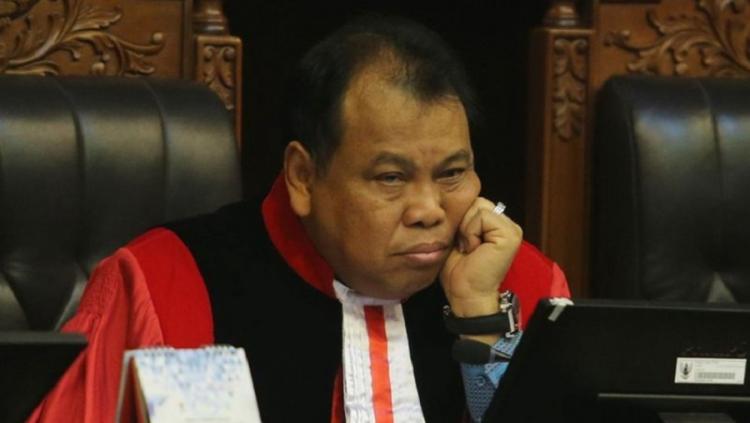Constitutional Court Chief, Political Lobbying, and an Alleged Ethical Offense

The Chief Justice of the Constitutional Court (MK) Arief Hidayat allegedly lobbied a number of politicians to extend his term of office, which will expire in the next 6 months. In addition to violating ethics, Arief's attitude can undermine MK's dignity.
Arief Hidayat’s lobbying was first made known by the Vice Chairman of Commission III of the House of Representatives, Desmond J. Mahesa. According to Desmond, Arief was playing a trump card to have his demand of a term extension fulfilled: If Commission III does not approve his demand, Saldi Isra, who is known to support the Corruption Eradication Commission (KPK), will replace him.
In addition to playing the Saldi card, Arief also offered a reward to the House. According to Tempo Magazine's report on December 10, 2017, if Commission III reappoints him, Arief promises that the institution he leads will give the DPR permission to examine the KPK.
As it is known, a number of civil society groups are filing a judicial review against Law No. 17 of 2014 on the People's Consultative Assembly, the House of Representatives, the Regional Representative Council, and the Regional People's Legislative Assembly (UU MD3). The public is examining the authority of the DPR to invoke its rights on the KPK. Not only the people, the staff members of the KPK are doing the same thing.
If it is true that the Chief Justice of the Constitutional Court is lobbying to extend his term of office, it is surely an ethical violation. The Code of Conduct of Constitutional Justice is governed by PMK09/2006, which mentions that lobbying for personal gain at least violates three ethical principles.
First, the principle of independence. Constitutional justices must guard against the influence of the executive, legislative, and other institutions. Second, the principle of partisanship. Constitutional justices must display good behavior both inside and outside the court, in order to maintain and enhance the confidence of the public, the legal profession, and the litigants.
Third, the principle of integrity. Constitutional justices are prohibited from requesting gifts, grants, loans or benefits from litigants or other parties who have a direct or indirect interest in the case to be or being examined. If it is true that in the lobbying the Chief Justice of the Constitutional Court promises something to Commission III as reported by Tempo magazine, then this principle of integrity has been completely violated.
In fact, this behavior is a potential violation of the Anti-Corruption Law. In the definition of bribery, the objects of bribery are not limited to money or goods, but also include promises. Moreover, it is known that Arief Hidayat, as the Chief Justice of the Constitutional Court, has earlier been reported of an ethical violation. Previously Arief had received a sanction in the form of oral reprimand, because he was considered careless, and proven to have made an ethical violation.
Against this condition, it is appropriate that the Ethics Council of the Constitutional Court takes a firm stance. It should immediately propose the establishment of an Ethical Honor Council of the Constitutional Court, because the potential of this violation cannot be considered trivial. The community has high hopes that the Code of Ethics and the authority of the Constitutional Court can be upheld. *** (Tama/Ade)










